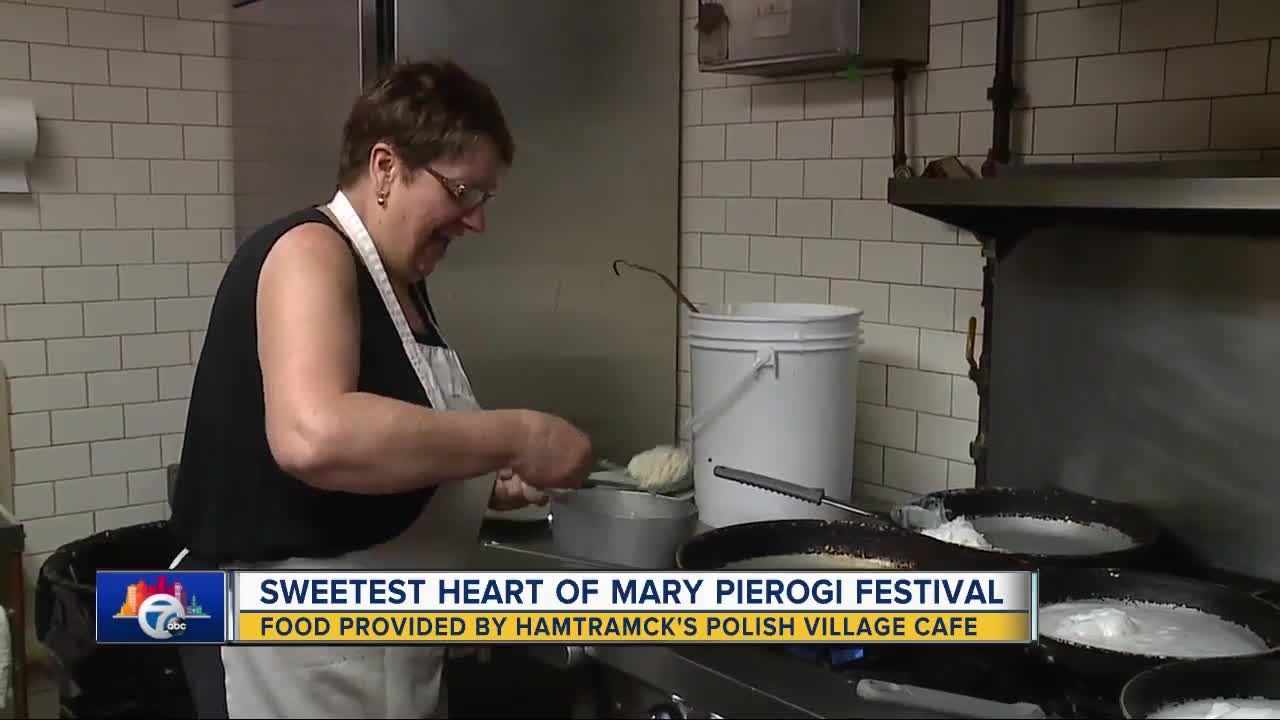It’s hard to determine what makes you feel more at home inside the Polish Village Cafe, the decorations that make it feel like you’ve just stepped into your grandparent’s home or the fresh scents wafting out of the kitchen.
The small restaurant tucked into a row of homes a stone’s throw from Hamtramck’s main stretch is a hidden gem to outsiders. To the regulars, it’s a mainstay.
Since the mid-1970s the Polish Village Cafe has been cooking up traditional polish fare. The recipes aren’t written down, they’ve been passed on from cook to cook. In fact, when we showed up one of the chefs was drinking various red wines looking for the right taste to go into a sauce.
“The recipes are original, nothing changes — maybe a tweak every now and then like how you saw the cook wanted to taste some gravy to ensure the gravy wasn’t too different,” said John Blacha, who works inside the Polish Village Cafe.
Blacha’s mother knew the original cook that worked with her at another polish restaurant. Many of those places are closed. Between changing times, and GM persuading Detroit and Hamtramck to use eminent domain to seize land in the area formerly known as “Poletown,” a lot of history has disappeared. Polish people were such a big part of Detroit that they’re credited with an American-polish classic known as “city chicken,” a Depression-era working-class dish that was cheaper than chicken utilized pork that became a staple in cities throughout the northeast and midwest.
“As businesses faded, we stayed,” said Blacha. “The further culture split up, the farther it went the more you want to come back. That’s what you experience when you come here.”
Walking into the village cafe is an experience. You walk down steps to the basement, some say it feels like a traditional Polish celebration. When the restaurant opened there wasn’t a lot of money being tossed around due to the times — everything from baptisms to weddings, even funerals, were celebrated in basements because they were the biggest meeting space. It wasn’t an intentional move on the restaurant’s spot, but few of their older customers can kick the thought that this feels like home.
“I used to come here with my aunt,” said Gary Rowinski. “She passed away a few years ago, so when I come here I think about her. It bring back memories. Plus the food is great.”
Everyone seems to have a story like that. Eve O’Grady comes from an Irish family, but her family always gathered inside the Polish Village Cafe. She flew back home this weekend from Texas. She hadn’t been home in three years, and one of the first spots she visited was the old cafe.
“It’s the atmosphere, I love the people,” said O’Grady.
“She said the food and the atmosphere, I could eat it in the alley,” said her brother Mark, laughing. “It’s good stuff.”
The Polish Village Cafe almost wasn’t. In fact, when the original owner known as “Doc Ted” bought the place he opened a pizzeria. It was doing decent business when the chiropractor and part-time restauranteur decided they’d build something closer to their roots: a traditional polish restaurant. You won’t find glazed duck and pilaf — something you’d likely find at a foodie spot in Warsaw, no Polish Village Cafe is closer to southern cuisine: affordable, hearty and delicious.
Doc Ted’s daughter now runs the restaurant, and while the menu changes you’ll always find the fan favorite: the Polish plate, also known as “A Taste of Poland.” It’s a combo plate with stuffed cabbage, a chunk of Kielbasa, kraut and mashed potatoes — you can upgrade to a traditional Pierogi, another polish favorite.
As for the cooks, there’s constant chatter in the kitchen — the cooks, mostly women, are a mix of Polish and Albanian workers who take turns cooking everything traditionally. You won’t find a single microwave on the property, the newest piece of kitchenware is decade-old cappuccino machine that never worked right. It now sits on the bar in the corner next to a smattering of dolls, a piano that once served as the evening entertainment and a wall of accordions — many broken while being played inside the restaurant.
“If you’re not going to Poland, you come here,” explained Blacha. “Everything here is Polish, this is as close to Poland as you can be. It’s comforting. It’s like being at your parents house, or your grandparents. It’s a throwback to the old culture. You can smell it. You can feel it


